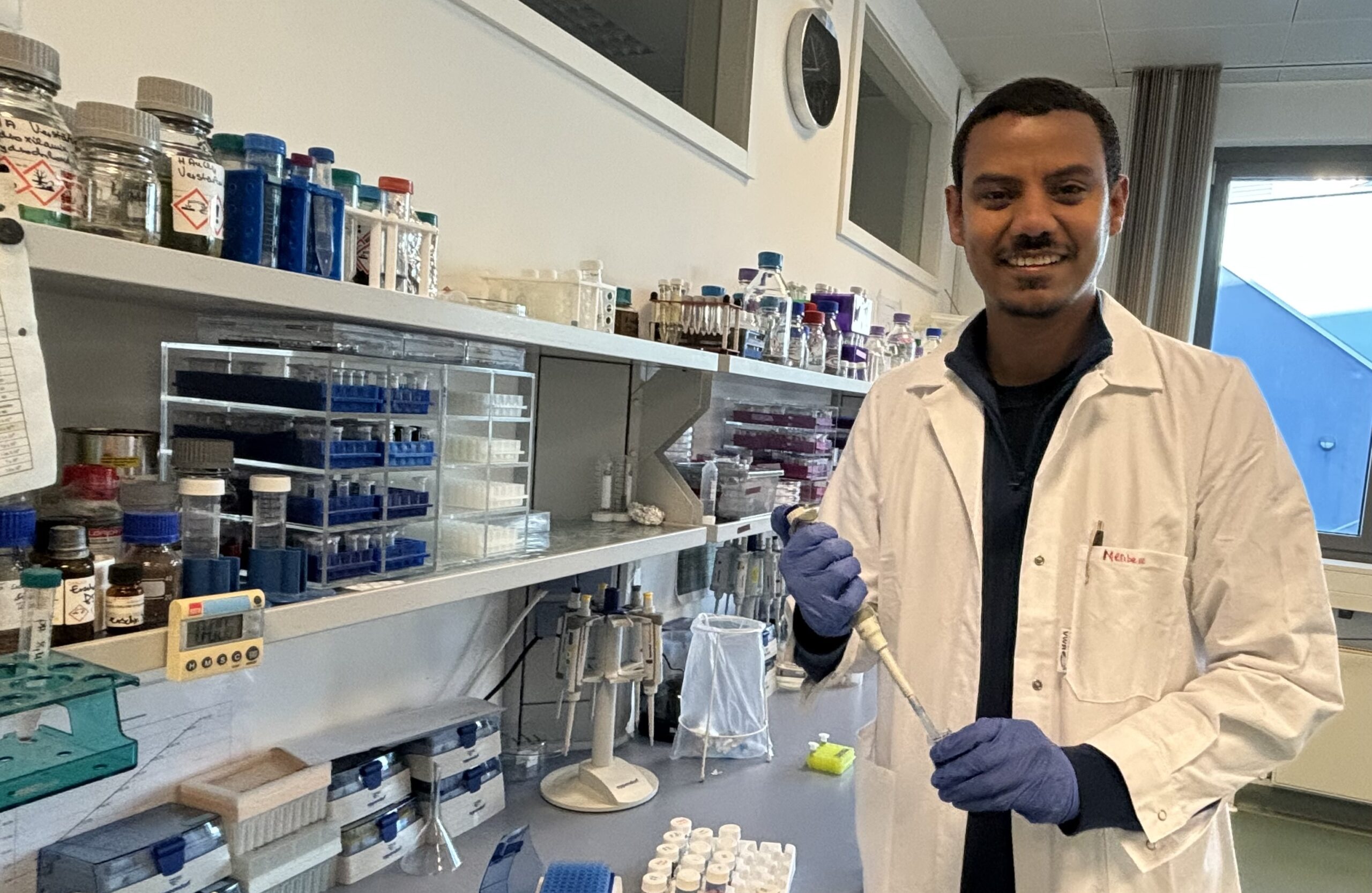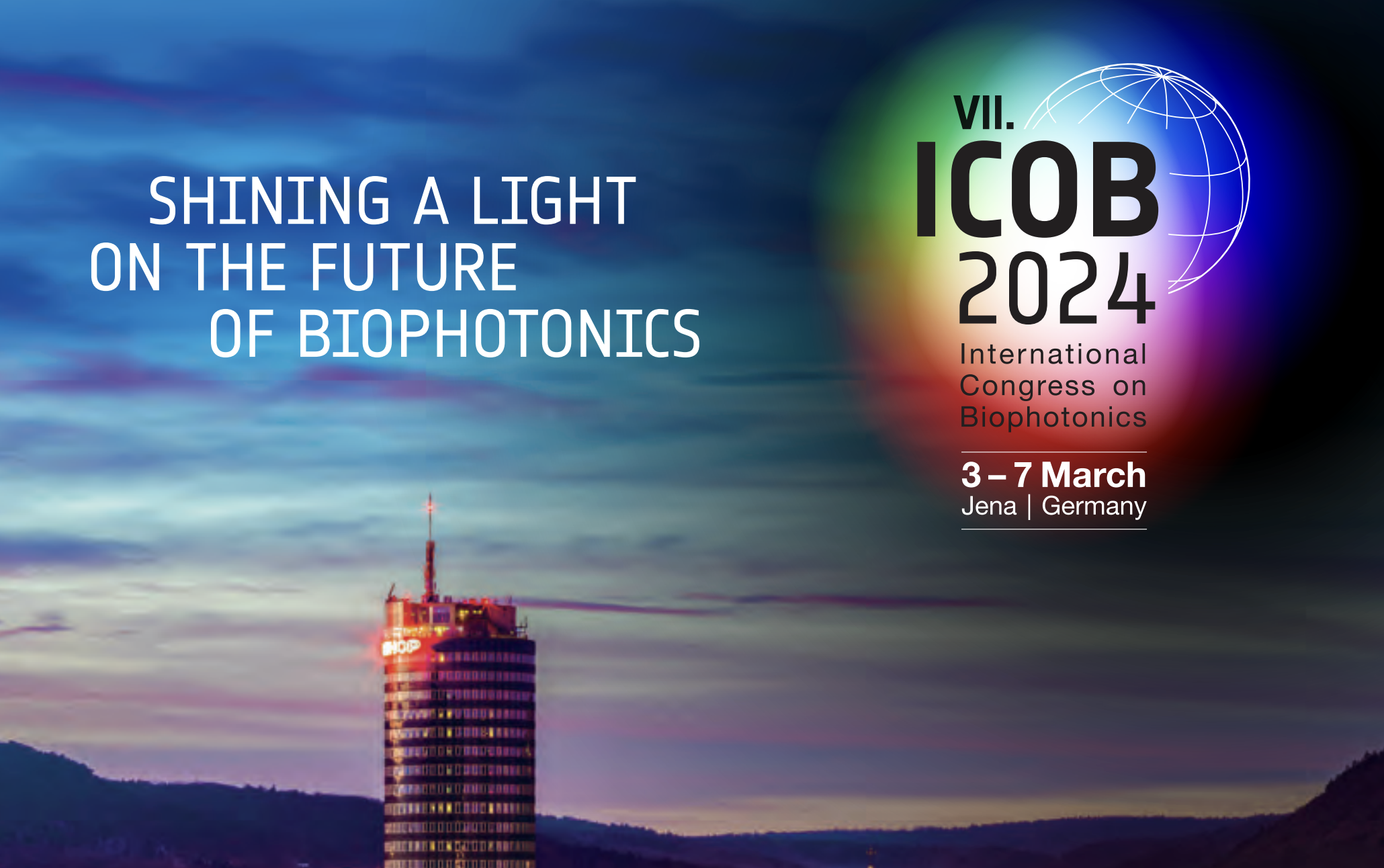From Ethiopia via Taiwan to Jena: Menbere Mekonnen Researches the Improvement of Plasmonic Nanoparticles for Bioanalytics

As a research fellow from Ethiopia, Dr. Menbere Mekonnen is bringing his expertise to Leibniz IPHT to work together on the development of sensors for food safety and environmental issues. In the future, he wants to inspire the next generation of researchers in his home country.
Menbere Mekonnen is currently Associate Professor at the Department of Industrial Chemistry at Addis Ababa Science and Technology University in Ethiopia. During his doctorate at the National Taiwan University of Science & Technology in Taipei, he took part in the International Conference on Raman Spectroscopy (ICORS) in Korea. There, the reputation of the Leibniz IPHT in this field aroused his interest. Back in Ethiopia, he intensified his research and made contact with Leibniz IPHT, which ultimately led to the successful joint application for a Georg Forster Research Fellowship from the Alexander von Humboldt Foundation. Over the next two years, Menbere Mekonnen will now be conducting research at Leibniz IPHT in the Nanobiophotonics research department headed by Prof. Wolfgang Fritzsche.
His current efforts are focused on improving the stability and bifunctionality of gold and silver nanoparticles by coating them with an ultrathin silica shell. His aim is to preserve the intrinsic properties of these nanoparticles, in particular the localized surface plasmon resonance (LSPR) effect, in order to improve their applicability in the detection of molecules with medical or environmental relevance.
Prospects for cooperation
Wolfgang Fritzsche sees great potential in the collaboration: “The ultra-thin silica coating developed by Menbere Mekonnen enables us to modify the gold nanoparticles in our sensors with silica and thus advance the detection of biomolecules even further. By changing color in a solution, molecular biomarkers can be made even more visible to the naked eye. Such a process does not require any special laboratory infrastructure, but can be used directly on site, for example to detect water pollution.”
Menbere Mekonnen strives to expand his knowledge and skills, strengthen his network and initiate collaborations in order to help establish the Nanotechnology Center of Excellence in Ethiopia after his return. He is particularly interested in transferring knowledge, training young scientists and solving urgent problems, such as developing sensors to ensure food safety and tackle environmental problems for use in Ethiopia.
The collaboration between Menbere Mekonnen and Leibniz IPHT opens up the possibility of expanding the field of bioanalytics in Ethiopia through the use of metallic nanostructures with plasmonic effect. Leibniz IPHT is planning a long-term cooperation to promote the exchange of students, strengthen research capacities in Ethiopia and develop customized solutions for local challenges.



